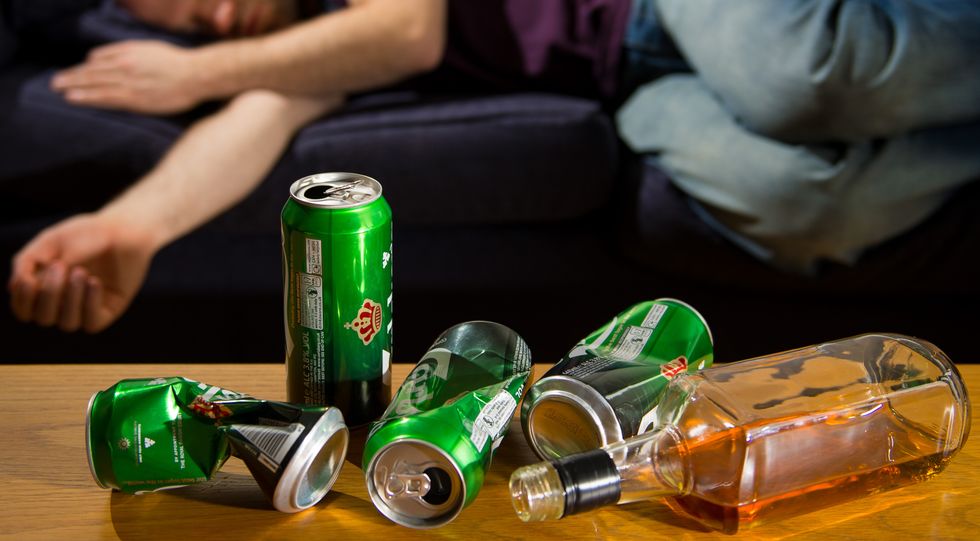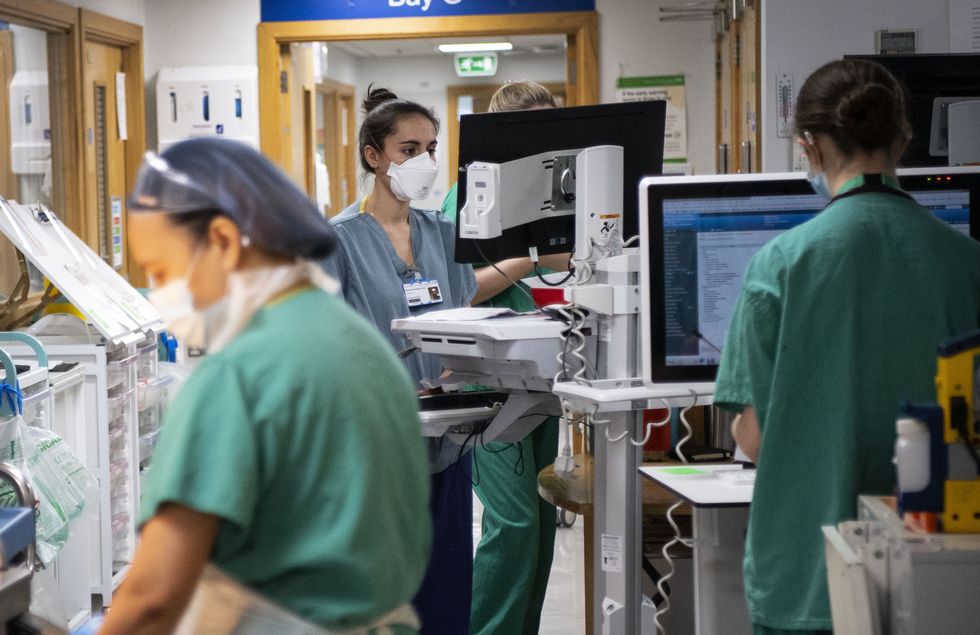Don't Miss
Most Read
Trending on GB News
While lighter drinkers cut their consumption during the Covid pandemic, heavier drinkers drank more and may never return to where they were, a study finds.
Commissioned by NHS England from the University of Sheffield, experts found that 25 to 34-year-olds who were drinking at risky levels before the pandemic were the most likely to increase their drinking when Covid-19 hit.
Looking at five alternative scenarios for how alcohol consumption may develop from 2022 onwards, researchers said that in a best-case scenario – where all drinkers return to their 2019 levels of drinking this year – there would still be an extra 42,677 hospital admissions and 1,830 deaths over 20 years due to alcohol.
In a worst-case scenario, this would rise to 972,382 extra hospital admissions and 25,192 deaths, at a cost to the NHS of £5.2billion over 20 years.
Alcohol consumption arguably became a bigger problem during the pandemic
Dominic Lipinski
The team added: “In our main scenario, we estimate that, over the next 20 years, there will be an additional 207,597 alcohol-attributable hospital admissions and 7,153 alcohol-attributable deaths, costing the NHS an additional £1.1billion compared to if alcohol consumption had remained at 2019 levels.
“These impacts are not evenly distributed across the population, with heavier drinkers and those in the most deprived areas, who already suffer the highest rates of alcohol-attributable harm, expected to be disproportionately affected.”
According to modelling in the report, lower risk drinkers are those drinking within the UK alcohol guidelines of 14 units per week.
Those classed as “increasing risk drinkers” consume more than this but no more than 35 units per week for women and 50 units for men.
And high-risk drinkers consume even more than that.
In a separate study, the Institute of Alcohol Studies (IAS) and modelling specialists HealthLumen found that if drinking does not to return to pre-pandemic patterns, then by 2035 there will be 147,892 additional cases of nine alcohol-related diseases – such as liver cirrhosis and breast cancer – and 9,914 more premature deaths, costing the NHS £1.2billion.
Even if alcohol consumption returns to 2019 levels after 2024, there will be 24,706 more cases of disease.
There are more than 200 health conditions linked to alcohol, including seven types of cancer.
Colin Angus, senior research fellow who led the University of Sheffield study, said: “These figures highlight that the pandemic’s impact on our drinking behaviour is likely to cast a long shadow on our health and paint a worrying picture at a time when NHS services are already under huge pressure due to treatment backlogs.”
He said that, before the pandemic, men were much more likely to end up in hospital or die as a result of their drinking and that is still the case.
But he said, for hospital admissions, experts were seeing a bigger percentage increase for women than for men.
In the main scenario modelled for the study, there is expected to be just over 124,000 additional hospital admissions in men and 83,000 in women over the next 20 years.
On the reasons for women drinking more, he said: “If you really dig into the data, for example, you see that there’s a particular sort of bump in women’s drinking at the point where they’re most likely to have been doing homeschooling during the initial lockdown.
“There’s certainly an obvious narrative that jumps out there about women being more likely to have been doing more of the homeschooling and finding that stressful and ending up drinking a little bit more as a result of that.”
Hospital admissions relating to alcohol consumption could go up as a result of the pandemic, experts warn
Victoria Jones
He said one suggestion for why heavier drinkers were drinking more was that they drank more at home during lockdowns but then, when pubs reopened, they did not cut down their drinking at home, so were doing both.
IAS head of research Dr Sadie Boniface said: “The pandemic has been bad for alcohol harm: deaths from alcohol have reached record levels, and inequalities have widened.
“The increases in alcohol harm, lives lost, and costs to the NHS projected in our study are not inevitable.
“We lack an alcohol strategy and progress on alcohol harm has been limited in recent years in England.
“This research should act as a ‘wake-up call’ to take alcohol harm seriously as part of recovery planning from the pandemic.”












